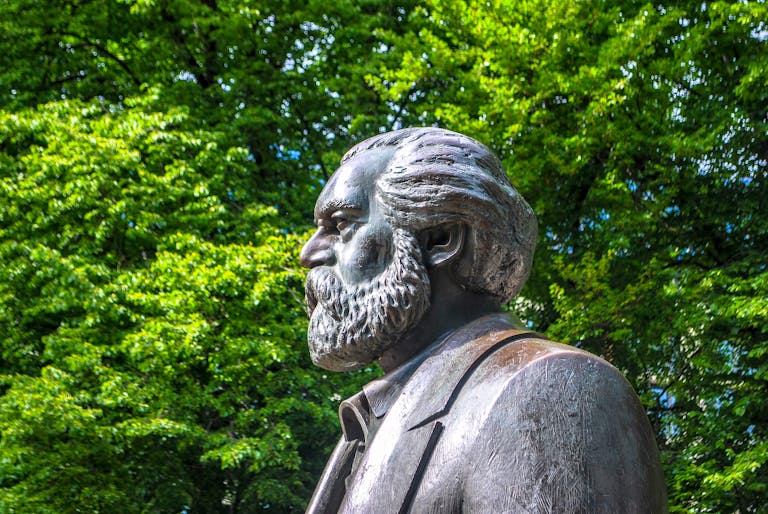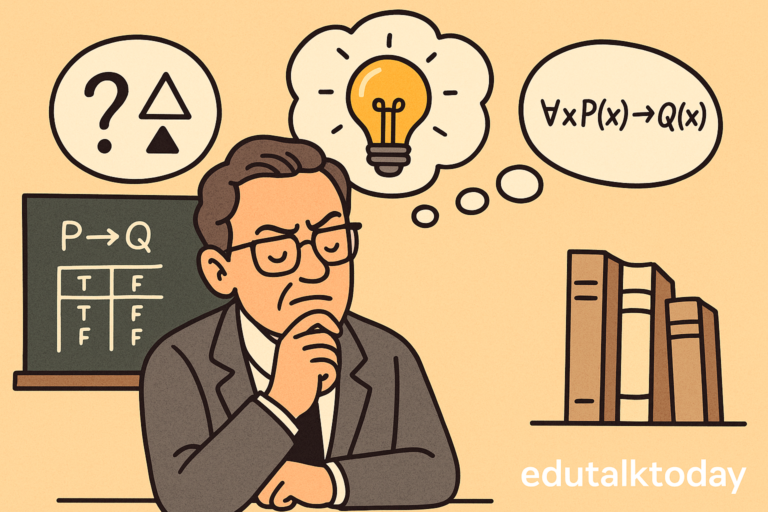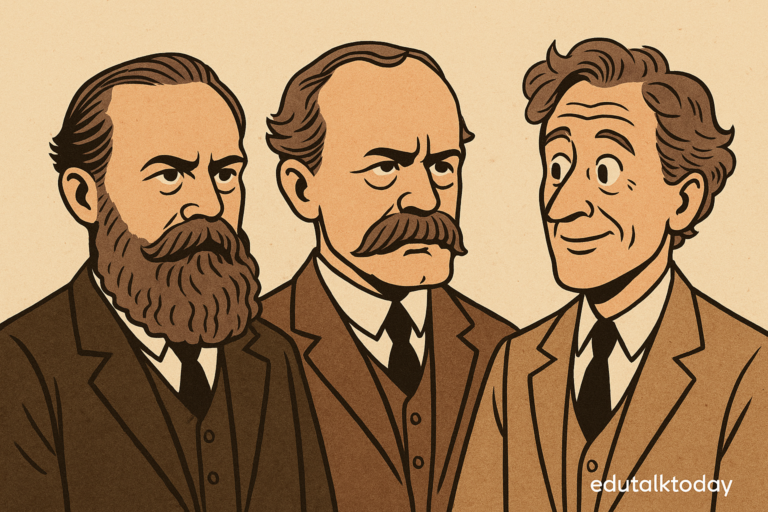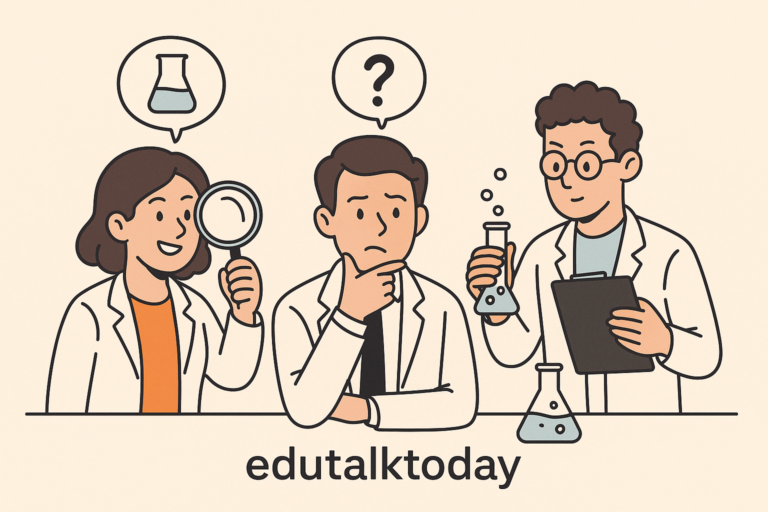Pragmatism vs Philosophy – Breaking the Stereotype of Ivory-Tower Thought
You’ve probably heard it before—some variation of, “Philosophy is just a bunch of abstract talk that doesn’t matter in real life.” Maybe you’ve even fielded that line at a dinner party or from a skeptical undergrad. And let’s be honest—sometimes, philosophy does look like it’s floating in an ivory tower, disconnected from real-world concerns.
But here’s the twist: that stereotype starts to fall apart the moment you seriously engage with pragmatism. Not because pragmatism is “anti-theory” or just about being practical.
It’s more radical than that. Pragmatism flips the whole idea of what philosophy is for. Instead of asking “what’s true in the abstract,” it asks “what works in experience?” and “how do ideas help us live and solve problems?”
In this piece, I want to dig into how pragmatism bridges that gap—and why it might actually be the philosophical tradition best suited to rebuild trust between thought and life.
What Pragmatism Is Actually Doing (It’s Not What You Think)
If you’ve taught or studied pragmatism, you’ve probably already fielded the caricature: “Oh, pragmatism is just saying whatever’s useful is true, right?” But that’s a reduction. Worse—it misses how pragmatism reshapes the philosophical game itself.
So let’s clear this up. Pragmatism isn’t just “practical philosophy” the way Stoicism gets sold in self-help podcasts. It’s a redefinition of philosophical inquiry, with roots in epistemology, metaphysics, logic, and even semiotics. Pragmatism is not about abandoning theory—it’s about changing what theory is for.
Let’s take this in pieces.
A Different Starting Point for Inquiry
Most Western philosophy begins with skepticism—Descartes, Hume, etc.—and tries to reconstruct certainty.
But Peirce flips that completely. For him, inquiry doesn’t start in doubt-as-method; it starts in real-life irritation, some kind of breakdown in habit that disrupts action.
His model of belief is functional: beliefs are rules for action, not static mental states. We believe something because it lets us navigate the world more smoothly—until it doesn’t. Then we revise.
That already changes the function of philosophy. It’s not the pursuit of certainty but the practice of resolving disorientation.
James: Truth is What Happens to an Idea
When James says that truth is “what works,” it’s not a shallow appeal to usefulness.
What he means is: ideas become true as they are verified in lived experience. Not because they correspond to some abstract reality, but because they “fit” with everything else we know and let us do.
One of my favorite examples: James defends the will to believe in contexts like religion—not by saying belief is true because it feels good, but because belief itself changes the reality you’re in.
Believing in someone’s love, for example, can make that love more real. He’s pointing out that some truths are performative, not representational.
That’s a bold metaphysical claim—and it messes with a lot of inherited frameworks about truth and fact.
Dewey: Philosophy as Cultural Critique, Not Blueprint
Dewey might be the most undervalued here. His idea that knowledge is an instrument for navigating uncertain, evolving situations pulls philosophy out of the abstract and into what he called “problematic situations.” His model is close to engineering or design thinking: you don’t apply universal rules—you build tools in context.
That’s why Dewey thought democracy was a form of epistemology, not just politics. A democratic society is one where problems are made public, contested, and revised—and that’s the same process as inquiry. Publics form when consequences get shared. That insight has become foundational in science and technology studies (think Bruno Latour), but Dewey was already there.
And when you look at education, Dewey’s rejection of rote methods wasn’t just pedagogical—it was philosophical. He was rejecting the idea that knowledge exists prior to experience.
Rorty and the Anti-Mirror Turn
Fast forward to the 20th century: Rorty takes pragmatism to its linguistic edge. No more foundations, no more mind-world mirroring. Language isn’t a window—it’s a toolset. Truth is a compliment we pay to statements that hold up in our conversations, not a mapping of language to reality.
Rorty’s genius is that he doesn’t just critique epistemology—he reframes the purpose of philosophy: not discovering eternal truths but helping us redescribe ourselves and our world in better ways. Philosophy becomes a cultural genre, like literature or politics, with a special role in shifting vocabularies.
This isn’t relativism—it’s liberation from foundationalism. It’s philosophy without metaphysical guilt.
So what’s the throughline here?
Pragmatism isn’t anti-theory—it’s theory remade. It’s theory that walks, acts, builds, and adapts. It trades in consequences, not certainties. And that’s exactly what makes it so disruptive—and so badly needed in a world that’s tired of abstract answers.
How Pragmatism Actually Shows Up in Real Life
One of the big reasons I think pragmatism still flies under the radar—even among philosophers—is that people don’t realize how much of the world already runs on pragmatist logic. It’s not just a theory—it’s in our legal systems, education models, business frameworks, and even the way we build AI. Once you know what to look for, it’s everywhere.
Let me walk through five places where pragmatist thought is baked into practice—often without being explicitly named. These aren’t just random examples—they show how the core commitments of pragmatism make systems more flexible, adaptive, and responsive to real-world conditions.
1. Law: From Principles to Predictions
Let’s start with the law, because it’s one of the cleanest cases. Oliver Wendell Holmes Jr.—probably the most explicitly pragmatist legal thinker—famously said: “The life of the law has not been logic; it has been experience.”
What did he mean? That legal reasoning isn’t about deductive consistency from timeless principles. It’s about how rules function in society. Holmes emphasized the “bad man’s point of view”—what will happen to me if I act this way? That’s not cynicism; it’s pragmatism. Law becomes a way of managing expectations and consequences, not just abstract justice.
Later, Richard Posner’s “economic analysis of law” pushes this further. He argued that judges implicitly optimize for social efficiency, not necessarily moral truths. That kind of cost-benefit lens—whether or not we agree with it—has its roots in pragmatist thinking about action-guided reasoning.
2. Education: Dewey Was Way Ahead
In education, John Dewey’s influence is still massive—though often watered down. He rejected the “banking model” of education (where teachers deposit knowledge into passive students) long before Paulo Freire made that critique famous.
Instead, Dewey argued that learning is a form of inquiry. Kids don’t learn by memorizing facts—they learn by engaging with real problems that arise in their environments. Sound familiar? That’s essentially the philosophical process, too.
Today’s best practices in education—project-based learning, experiential classrooms, even Montessori to some extent—all reflect Dewey’s pragmatist idea that learning happens in context, not isolation. What works in one classroom might not in another, because truth in education is always tied to local conditions.
3. Ethics & Policy: No More Rule Worship
Pragmatism has also carved out space in applied ethics and policy-making—though, again, it often shows up without a label.
Traditional moral theories (Kantianism, utilitarianism, virtue ethics) tend to chase after idealized formulations. But in healthcare policy, bioethics, climate governance—you’ll find that most serious work doesn’t rely on those clean abstractions. Instead, decision-makers reason through messy, context-bound cases, weighing outcomes, stakeholder views, and practical constraints.
This is classic Dewey: ethics isn’t a matter of applying pre-existing rules but creatively navigating new problems with shared values. This is exactly why “principlism” in bioethics (Beauchamp & Childress) has been gradually replaced or supplemented with case-based, iterative approaches.
4. AI & Cognitive Science: Embodiment Is Pragmatism in Disguise
One of the more surprising places you’ll find pragmatism? Contemporary AI research and embodied cognition.
Think about Andy Clark’s extended mind thesis, or Varela, Thompson, and Rosch’s The Embodied Mind. They all reject the traditional “mind as representation” model. Instead, they argue that cognition is an active, embodied process grounded in our practical interaction with the environment.
That’s straight out of Dewey and James. The mind isn’t a mirror—it’s a tool for engaging the world. Even machine learning researchers now talk about how affordances shape intelligent systems, rather than building perfect internal models.
So even in cutting-edge tech, pragmatism helps break the illusion that intelligence or knowledge is just internal computation.
5. Business, Strategy, and Design Thinking
This one always surprises people: many of the most agile and innovative business practices today reflect pragmatist insights—even if they’re never called that.
Take design thinking, for example. It’s iterative, prototype-driven, focused on user experience and real-world feedback. Sound familiar? It’s Deweyan inquiry with a new coat of paint.
Or look at how successful organizations operate in VUCA (volatile, uncertain, complex, ambiguous) environments. They don’t follow fixed rules—they adapt. They learn by doing. They iterate based on feedback. This is pragmatism as organizational philosophy.
Agile development, lean startups, human-centered design—they all embody the pragmatist insight that knowledge emerges through doing, not theorizing in isolation.
So what’s the big takeaway? Pragmatism doesn’t just make philosophy more practical—it reveals that “practice” itself is already theoretical. We’re theorizing all the time, we just call it design, policy, pedagogy, or code.
Philosophy isn’t entering the “real world.” It’s waking up to the fact that it’s been there all along.
Rethinking What Philosophy Is For
Alright, so we’ve looked at how pragmatism works in the wild. But let’s circle back to the bigger question: what does this tell us about philosophy itself? Not just as a discipline—but as a way of making sense of the world.
I think this is where pragmatism gets really interesting—it doesn’t just offer a new set of tools; it offers a new way of understanding what it means to use tools at all.
Let’s Break the Old Frame
Most of us were trained to think that philosophy is about asking the big, timeless questions: What is truth? What is justice? What is knowledge?
But for pragmatists, those questions are still fine to ask—they just don’t have timeless answers. They shift based on context, problems, history, and language. Truth isn’t what corresponds to reality—it’s what helps us move through it.
That’s not relativism. It’s fallibilism. It’s the idea that we can hold beliefs, even deeply cherished ones, while knowing they’re always provisional.
Rorty put it perfectly: “Truth is what your peers let you get away with saying.” It sounds glib, but he’s making a serious point. Justification is always social. There’s no God’s-eye view. And if we’re honest, most of our so-called “neutral” philosophical frameworks were always smuggling in metaphysical baggage.
Five Big Implications for Philosophy Today
Let me get a bit more pointed here. If we take pragmatism seriously—not just as a school of thought, but as a metaphilosophy—we start seeing five major shifts:
- Philosophy isn’t about finding foundations. It’s about redescribing problems.
Pragmatists don’t ask “What is knowledge?” They ask “What does it do to say someone knows something?” That changes everything. - Concepts are tools, not mirrors.
You don’t need a perfect definition of “justice” to make a just policy. You need a concept that helps you respond to a specific social failure. That’s design, not deduction. - Norms emerge through use.
Meaning, value, even truth—they’re not pre-loaded into the world. They emerge as we engage with it, socially and historically. Think Wittgenstein meets Dewey. - Philosophy is experimental.
Just like science, philosophy needs to take risks, make proposals, and revise. You don’t “solve” problems forever. You test solutions against what the world throws back at you. - Philosophers aren’t neutral observers—they’re participants.
The ivory tower idea assumes distance. Pragmatism says there is no outside. Philosophers are already embedded in the social and linguistic practices they critique.
This isn’t about rejecting other traditions—but it is a challenge. If your work is still trying to find secure ground for knowledge, morality, or metaphysics, pragmatism is gently (or maybe not-so-gently) suggesting that you’re asking the wrong kind of question.
It’s not about final answers. It’s about better ways to keep going.
Final Thoughts
So here’s where we land: pragmatism breaks the stereotype of philosophy as disconnected by refusing to see theory and practice as separate in the first place.
Ideas are tools. Truth is a process. Thinking is a form of doing.
And honestly? That’s not a retreat from rigor. It’s an invitation to take our work seriously enough to make it count in the world—not just on the page.
If you’re a philosopher tired of dead-end debates and detached theories, pragmatism isn’t the end of philosophy. It’s just the beginning of a different kind.





